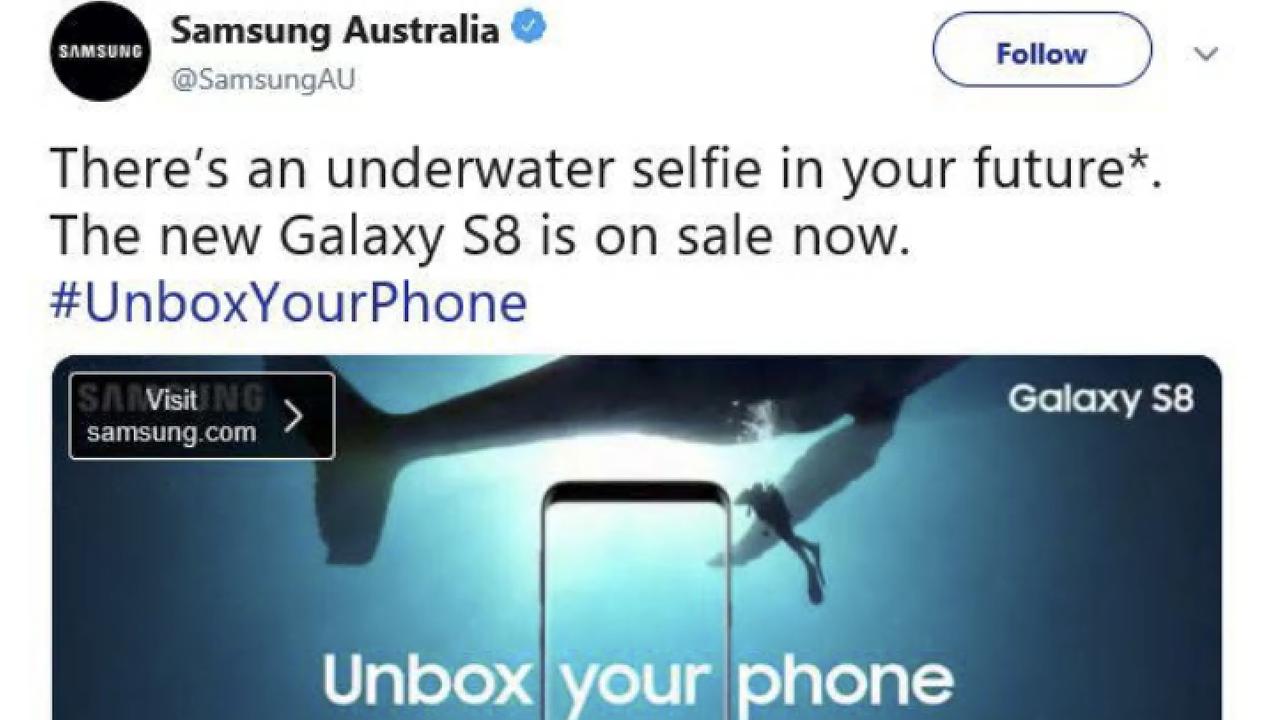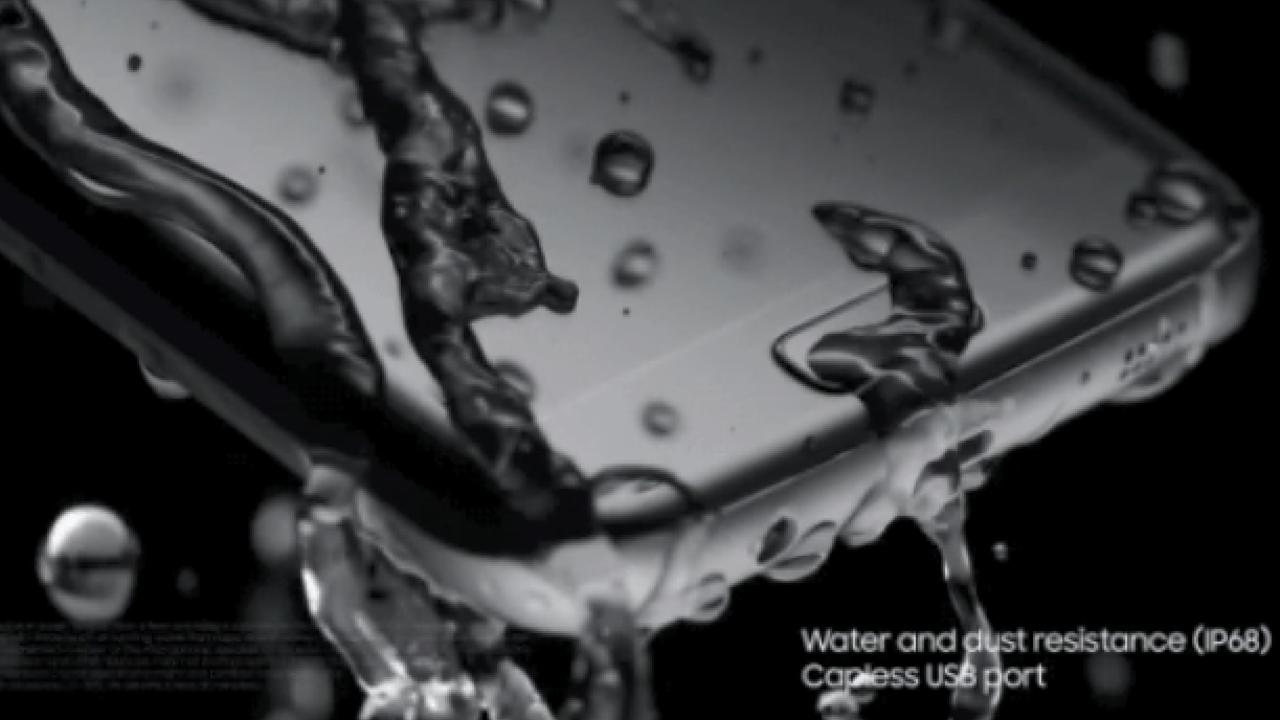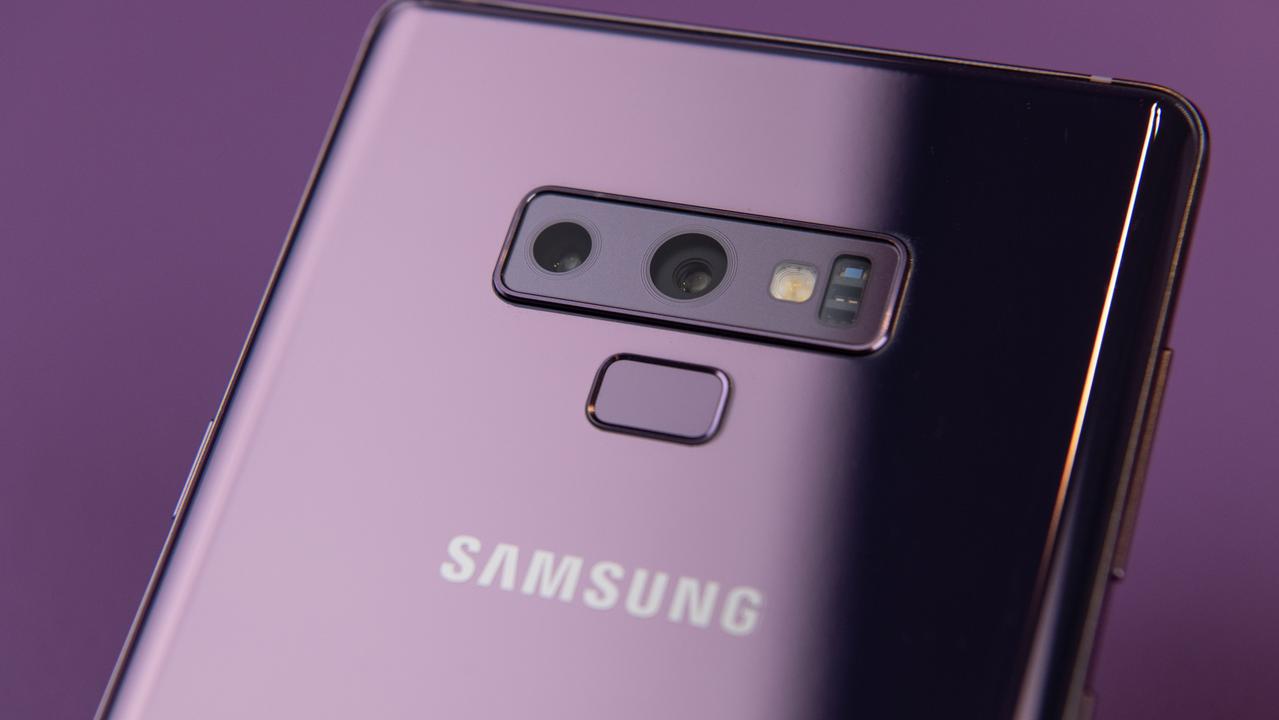Samsung Australia cops $14 million fine for false advertising
Samsung Australia has been ordered to cough up $14 million in fines after falsely claiming in a series of ads that its phones were fully water resistant.
The Federal Court has handed Samsung Australia a whopping $14 million fine for misleading advertising about the water resistance capacity of its products.
In a series of ads that ran between 2016-2018, Samsung Australia claimed that a number of its marquee products would work as normal when submerged in swimming pools or the ocean, with effective operation possible at depths of 1.5m, for up to half an hour.
Nine ads marketing the S7, S7 Edge, A5 (2017), A7 (2017), S8, S8 Plus and Note 8 Samsung Galaxy phones were released, with more than three million Australians purchasing the products.
The Australian Competition and Consumer Commission (ACCC) took the company to the federal court in 2019, amid findings the charging ports on the phones failed to work properly and became corroded if used while containing moisture.


“Samsung Australia’s water-resistance claims promoted an important selling point for these Galaxy phones,” ACCC chair Gina Cass-Gottlieb said.
“Many consumers who purchased a Galaxy phone may have been exposed to the misleading ads before they made their decision to purchase a new phone.
“We reviewed hundreds of complaints from consumers who reported they experienced issues with their Galaxy phones after it was exposed to water and, in many cases, they reported their Galaxy phone stopped working entirely.”
According to the commission, prior to the launch of the products Samsung Australia’s parent company Samsung Electronics Co., Ltd. (SEC) was seeking to mitigate the effects of corrosion caused by charging the phones when the ports had moisture in them.
Despite this, Samsung Australia pushed ahead with its marketing campaign.
“Samsung Australia’s ads promoting its Galaxy phones featured people using their phones in pools and sea water, despite the fact that this could ultimately result in significant damage to the phone,” Ms Cass-Gottlieb said.
“This penalty is a strong reminder to businesses that all product claims must be substantiated. The ACCC will continue to take enforcement action against businesses that mislead consumers with claims about the nature or benefits of their products.”

According to a statement provided to Gizmodo Australia on Thursday, Samsung Australia tested seven phone models extensively to assess the water-resistance capabilities prior to launch, including tests in pool and seawater.
Phones would display the now-familiar warning sign that moisture had been detected in the charging port, with the products also using in-built systems to minimise corrosion.
“Notwithstanding this, the ACCC and Samsung have agreed that, if the historical Galaxy phone models were submerged in pool or sea water and then attempted to be charged while pool or sea water remained in the charging port (despite the warning message) then there was a material prospect that the charging port might corrode over time,” Samsung said.






